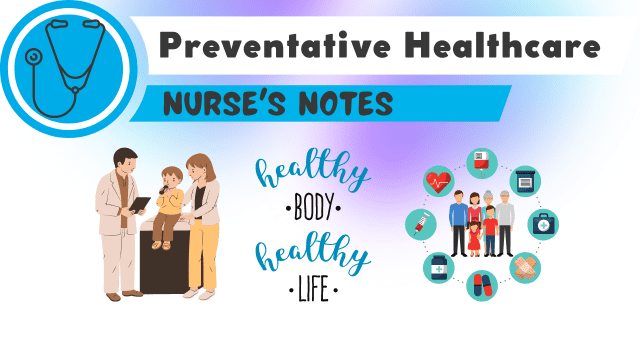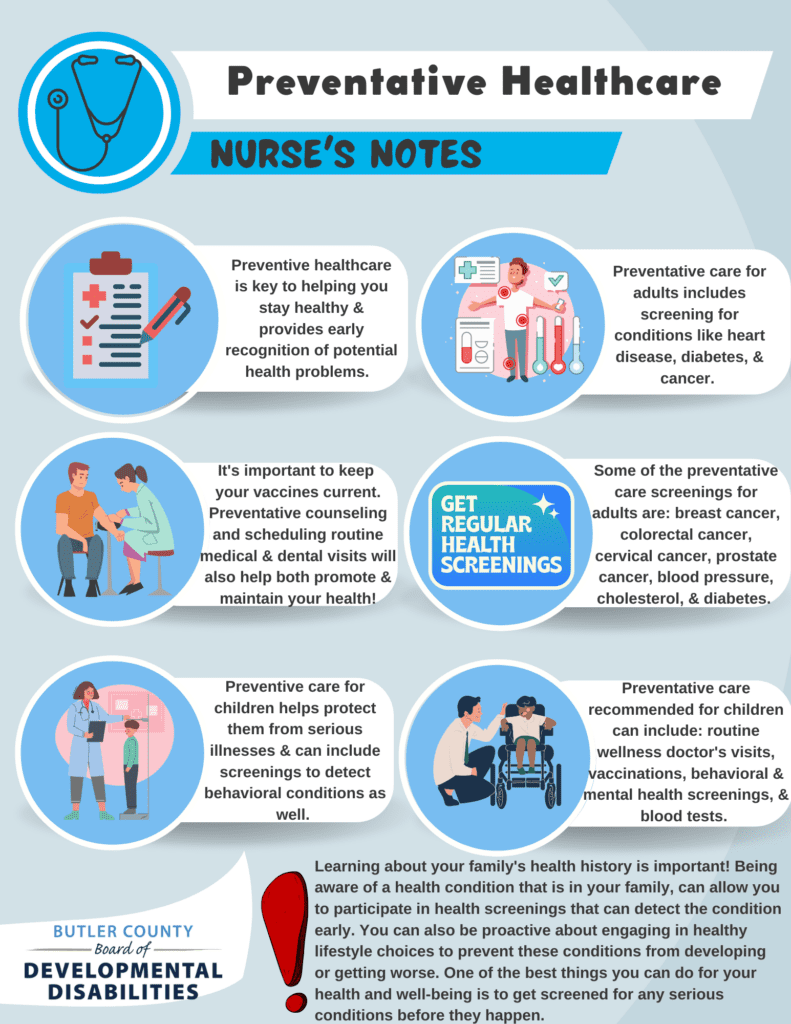
Nurse’s Notes: Preventative Healthcare
Every month, our staff nurses share important health updates. This month, our nurses are talking about preventative healthcare!
Preventive healthcare is key to helping you stay healthy and provides early recognition of potential health problems. Seeking preventative healthcare can help you live a longer, healthier life!
Preventative care for adults typically includes screening for conditions like heart disease, diabetes, and cancer. This also includes counseling and receiving appropriate patient teaching on healthy eating and life habits.
What are some of the screenings recommended for adults? (Please note that these screenings are recommended based on age and family history).
- Screenings for breast cancer, colorectal cancer, cervical cancer, and prostate cancer: These types of cancers are affecting men and women the most and early detection can stop or slow the spread and allow early treatment.
- Screenings for blood pressure, cholesterol, and diabetes: These screenings can detect common conditions that can be treated with basic lifestyle changes and or medications. If left untreated or diagnosed, they can lead to serious diseases and early death.
- Immunizations: Not only children need vaccines, but adults should also stay on top of their vaccines as well. Annual flu shots, COVID-19 vaccines and any necessary boosters can help you prevent illness and diseases. Visit the CDC for guidelines on vaccines.
- Preventative Counseling: Preventative counseling and patient teaching is useful to help us make ongoing positive health related changes to promote a healthy lifestyle.
- Scheduling routine medical and dental visits: Annual physicals and routine dental care is valuable to maintain general health and ensure necessary recommended screenings are performed.
Preventive care for children helps protect them from serious illnesses and can include screenings to detect behavioral conditions as well. Preventive healthcare can help children stay healthy when they’re young and promote healthy decision making as they grow older.
What preventative care is recommended for children?
- Well-child visits: Routine visits every few months when your child is an infant, and yearly after that. Routine immunizations and screenings are also conducted during these visits.
- Vaccinations: Vaccinations for children protect them from serious diseases now and in the future.
- Behavioral and mental health screenings: Pediatricians routinely screen children for conditions like autism, depression, and developmental delays.
- Blood tests: Various blood test screenings can be conducted throughout childhood to detect various diseases.
Why is knowing your family history important?
Learning that you have a family history of a serious health condition can be discouraging and stressful, but knowledge is power. When you are aware of a health condition that is in your family, you can participate in health screenings that can detect the condition early, so that treatment is more effective and can be started early on. You can also be proactive about engaging in healthy lifestyle choices to prevent these conditions from developing or getting worse.
One of the best things you can do for your health and well-being is to get screened for any serious conditions before they happen. That’s what preventive health is about, and why medical experts recommend that all adults and children participate in routine tests, screenings, and immunizations.

If you have any questions about preventive care and what screenings you or your children should get, be sure to talk with your doctor or healthcare professional. Check to see if you are up to date on your preventative care!
